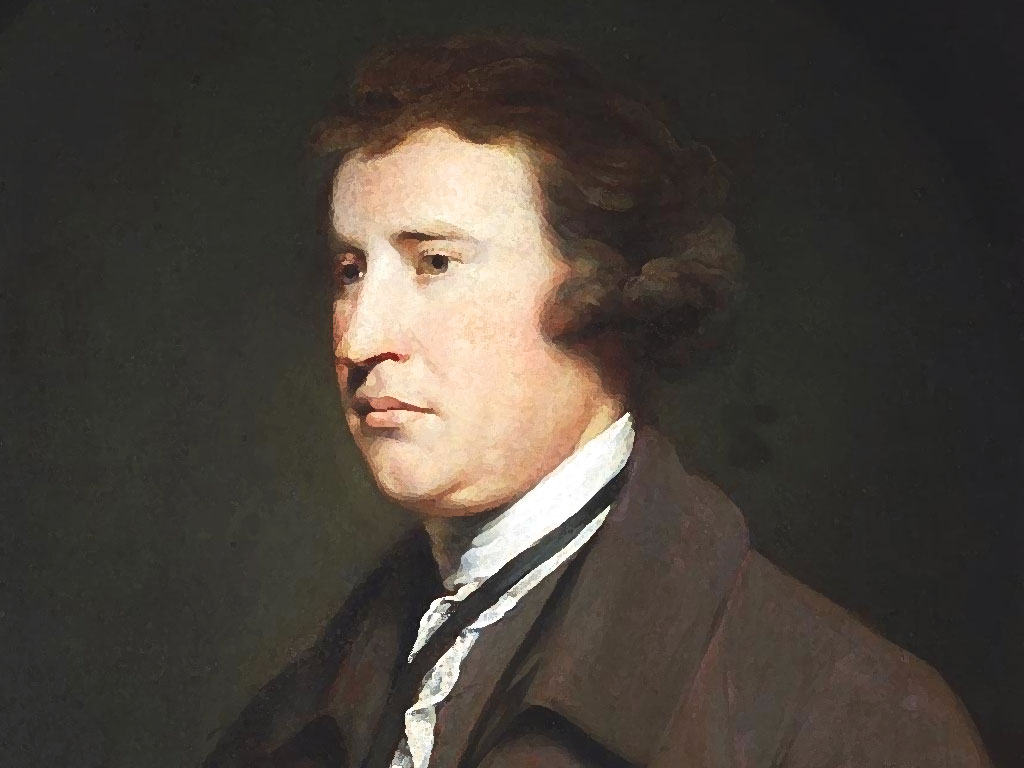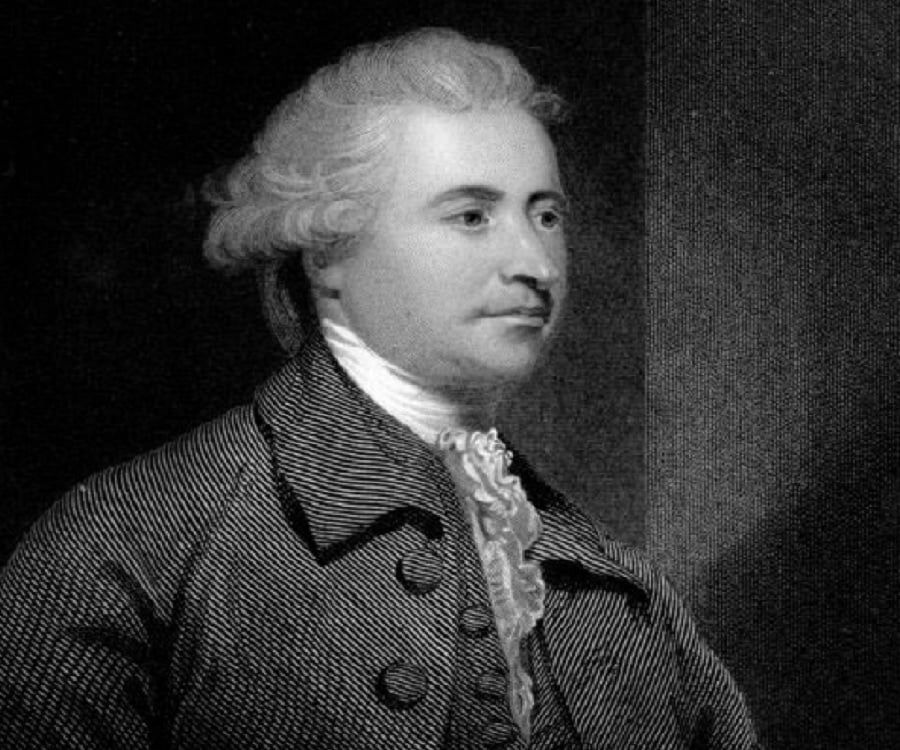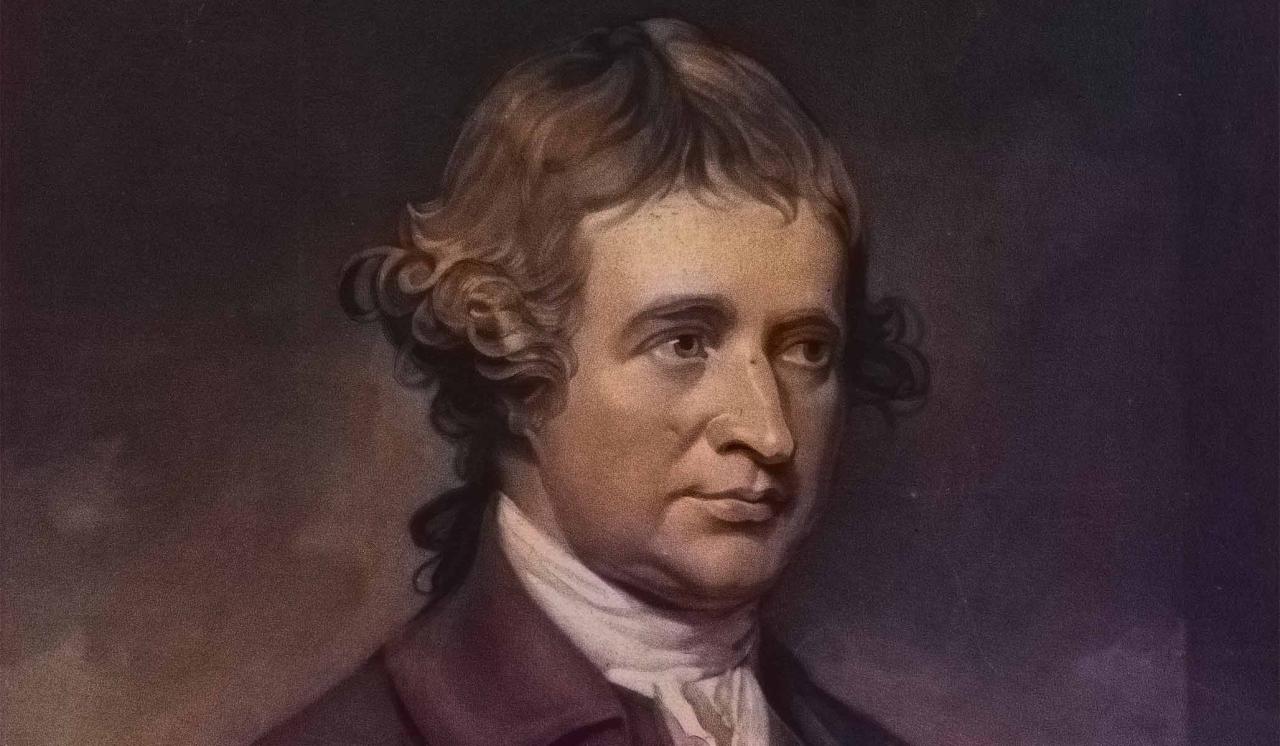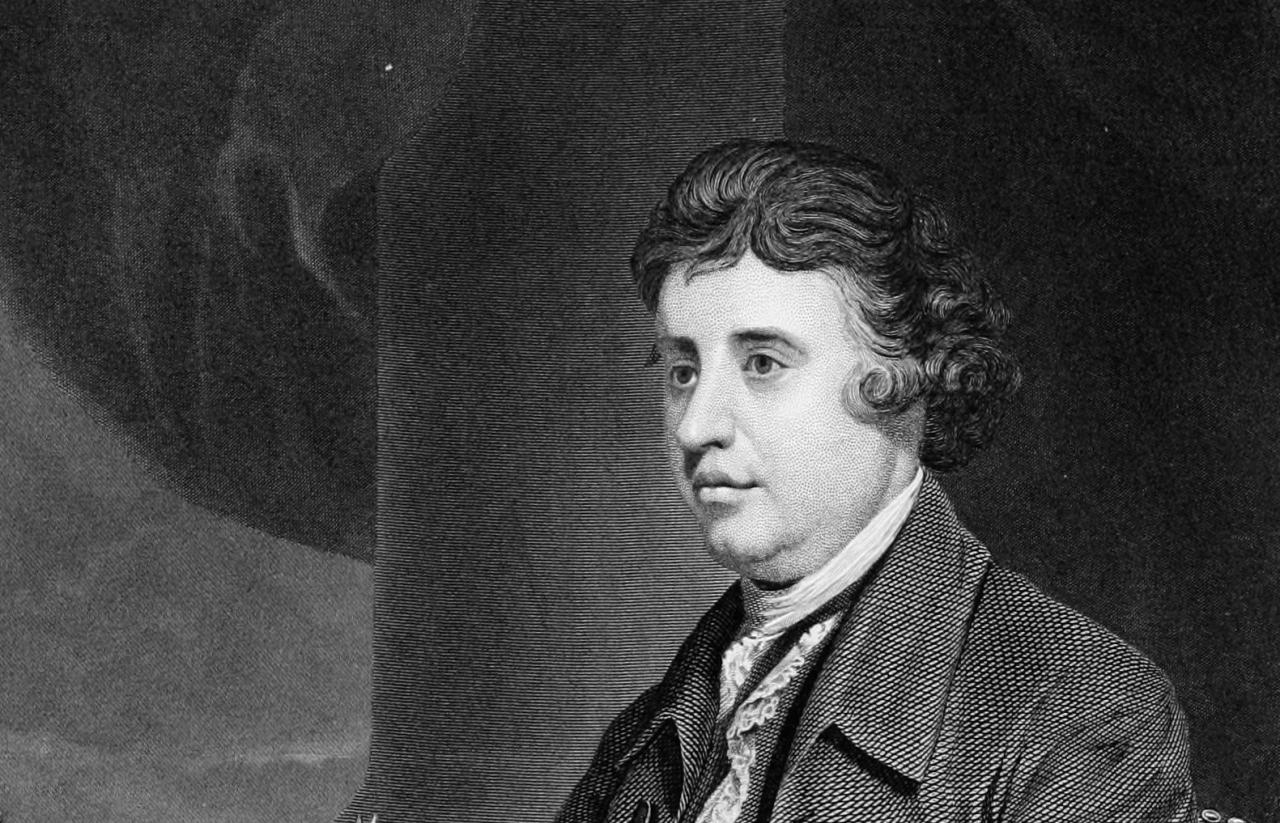Ed Burke, a towering figure in political philosophy, left an indelible mark on Western thought with his profound insights into the nature of government, revolution, and society. From his early writings to his seminal work on the French Revolution, Burke’s ideas continue to resonate today, shaping our understanding of politics and the human condition.
Burke’s political philosophy was rooted in a deep respect for tradition, limited government, and the importance of natural rights. He believed that society should evolve gradually, guided by the wisdom of the past, rather than through radical upheavals. His critique of the French Revolution, Artikeld in his masterpiece “Reflections on the Revolution in France,” remains a classic work of political analysis, warning against the dangers of unchecked radicalism and the importance of preserving established institutions.
Early Life and Career
Edmund Burke, the renowned Irish statesman and philosopher, was born on January 12, 1729, in Dublin, Ireland. His father, Richard Burke, was a successful attorney, and his mother, Mary Nagle, was a devout Catholic. Burke received his early education at a Quaker school in Ballitore, County Kildare, where he excelled in his studies and developed a lifelong interest in literature, philosophy, and politics.
In 1744, Burke entered Trinity College Dublin, where he studied law. However, he soon abandoned his legal studies to pursue his passion for writing and politics. In 1750, he published his first major work, A Vindication of Natural Society, a satirical attack on the social contract theories of Thomas Hobbes and Jean-Jacques Rousseau. This work established Burke’s reputation as a brilliant and provocative thinker.
Early Political Involvement
In 1756, Burke was elected to the Irish House of Commons as a member for County Tipperary. He quickly emerged as a leading figure in Irish politics, advocating for the rights of Irish Catholics and opposing British oppression. In 1765, he was elected to the British House of Commons as a member for Wendover. In Parliament, Burke became a prominent critic of the British government’s policies towards the American colonies.
Early Writings and Speeches
Throughout his early career, Burke wrote and spoke extensively on a wide range of political and philosophical issues. His writings and speeches on the American Revolution, in particular, were highly influential in shaping public opinion and helped to bring about the Declaration of Independence.
Political Philosophy
Edmund Burke’s political philosophy was a complex and nuanced one, but at its core were several key principles. First, Burke believed in the importance of natural rights, which he argued were inherent in all human beings and could not be taken away by any government.
Second, Burke believed that government should be limited in its powers. He argued that the best government was one that interfered as little as possible in the lives of its citizens. Finally, Burke believed that tradition was an important source of wisdom and stability in society. He argued that we should be slow to change our institutions, even if they are imperfect.
Critique of the French Revolution, Ed burke
Burke’s political philosophy was put to the test during the French Revolution. Burke was a staunch critic of the Revolution, arguing that it was a dangerous and destructive force that would lead to chaos and bloodshed. He believed that the revolutionaries were too quick to tear down the old order without having a clear plan for what would replace it.
Ed Burke, a prominent politician known for his conservative views, has been in the spotlight for his controversial statements. However, Burke’s notoriety is not limited to politics. His name has also been linked to the infamous case of Rodney Alcala, a serial killer who appeared on the popular TV show Dating Game.
Alcala’s chilling appearance on the show sent shivers down the spines of viewers, and his subsequent arrest and conviction brought renewed attention to Burke’s association with him.
Defense of Established Institutions
In contrast to his critique of the French Revolution, Burke was a strong defender of established institutions. He believed that these institutions, such as the monarchy and the church, provided stability and order to society. He argued that we should be slow to change these institutions, even if they are imperfect.
American Revolution
Edmund Burke played a significant role in the American Revolution, both as a supporter of the colonists’ cause and as a critic of British policies. He believed that the colonists had the right to self-government and that the British government was overstepping its authority in trying to impose taxes and other measures on them without their consent.
Burke’s writings and speeches on the American Revolution were widely read and influential. In his 1775 speech “On Conciliation with America,” he argued that the British government should grant the colonists greater autonomy and that war with the colonies would be disastrous for both sides. He also criticized the British government’s use of force against the colonists, arguing that it was both unjust and ineffective.
Burke’s Views on Colonial Rights
Burke believed that the colonists had the right to self-government because they were British subjects who had settled in America with the consent of the Crown. He argued that the colonists had the same rights as other British subjects, including the right to be represented in Parliament and the right to be free from taxation without their consent.
Burke’s Views on the Limits of Imperial Power
Burke believed that the British government had the right to regulate trade with the colonies and to defend them from foreign enemies. However, he argued that the British government did not have the right to impose taxes on the colonies without their consent or to interfere in their internal affairs. He believed that the British government’s attempts to do so were a violation of the colonists’ rights and that they would ultimately lead to war.
Reflections on the Revolution in France
In 1790, Edmund Burke published his seminal work, Reflections on the Revolution in France, a profound critique of the French Revolution. He analyzed its causes and consequences, warning against the dangers of radicalism and the potential for tyranny to arise from the pursuit of revolutionary ideals.
Burke argued that the Revolution was not a spontaneous uprising of the people but rather a calculated and violent seizure of power by a small group of radical intellectuals. He condemned the revolutionaries’ disregard for tradition and their belief that they could create a perfect society based on abstract principles.
Burke’s Critique of the French Revolution
Burke’s critique of the French Revolution was multifaceted. He argued that:
- The revolutionaries had destroyed the traditional institutions of French society, including the monarchy and the Church, without providing any viable alternatives.
- The revolutionaries had unleashed a reign of terror and violence, targeting innocent citizens and undermining the rule of law.
- The revolutionaries were driven by an abstract and utopian ideology that ignored the realities of human nature and the complexities of society.
Later Career and Legacy: Ed Burke
After the American Revolution, Burke continued his political career in the British Parliament. He became a leading critic of the government’s policies towards India, and played a key role in the impeachment of Warren Hastings, the Governor-General of India. Burke was also a strong advocate for Catholic emancipation, and helped to secure the passage of the Catholic Relief Act of 1791.
Burke’s legacy as a political philosopher is complex and contested. He is often seen as a conservative thinker, but his writings also contain elements of liberalism and radicalism. Burke’s most famous work, Reflections on the Revolution in France, is a powerful critique of the French Revolution. Burke argued that the Revolution was a dangerous and destructive force that would lead to chaos and tyranny.
Burke’s ideas have had a profound influence on subsequent generations of thinkers. He is considered one of the founders of modern conservatism, and his writings have been cited by both left-wing and right-wing politicians. Burke’s legacy is a complex and contested one, but there is no doubt that he was one of the most important political thinkers of his time.
Role in the Impeachment of Warren Hastings
Burke played a leading role in the impeachment of Warren Hastings, the Governor-General of India. Hastings was accused of corruption and tyranny, and Burke was one of the main prosecutors in the case. The impeachment trial lasted for seven years, and Hastings was eventually acquitted. However, Burke’s efforts helped to raise awareness of the abuses that were taking place in India, and led to reforms in the British government’s policies towards the subcontinent.
Support for Catholic Emancipation
Burke was a strong advocate for Catholic emancipation. Catholics were denied many civil rights in Britain at the time, and Burke argued that this was unjust. He helped to secure the passage of the Catholic Relief Act of 1791, which gave Catholics the right to vote and hold public office. Burke’s support for Catholic emancipation was controversial at the time, but it is now seen as one of his most important achievements.
Woman of the Hour
Woman of the Hour is a 1932 American pre-Code drama film directed by George Cukor and starring Kay Francis, Charles Bickford, and Una Merkel. The film tells the story of Mary Preston, a successful Broadway actress who is forced to choose between her career and her personal life.
Plot
Mary Preston is a successful Broadway actress who is engaged to a wealthy businessman. However, she is torn between her career and her personal life. She loves her fiancé, but she also loves her work. She eventually decides to choose her career, and the film ends with her giving a triumphant performance on Broadway.
Characters
Mary Preston is a complex and well-developed character. She is a strong and independent woman who is not afraid to go after what she wants. She is also a talented actress who is passionate about her work. Charles Bickford plays Mary’s fiancé, a wealthy businessman who is supportive of her career. Una Merkel plays Mary’s best friend, a struggling actress who is always there for her.
Themes
Woman of the Hour explores several themes, including the conflict between career and personal life, the importance of following your dreams, and the power of love. The film shows that it is possible to have a successful career and a happy personal life, but it is not always easy. The film also shows that it is important to follow your dreams, even if they are difficult to achieve.
Historical accuracy
Woman of the Hour is not based on a true story, but it does reflect the social and cultural attitudes of the early 20th century. The film shows the challenges that women faced in pursuing a career, and it also shows the importance of love and family.
Related Individuals
Cheryl Bradshaw, Anna Kendrick, Rodney Alcala, and Daniel Zovatto are individuals who have been associated with Edmund Burke in various capacities.
Cheryl Bradshaw
Cheryl Bradshaw is a British historian and author who has written extensively about Edmund Burke. Her works include “Burke, Paine, and the Rights of Man” (2004) and “Edmund Burke: Political Thought and Historical Context” (2010).
Anna Kendrick
Anna Kendrick is an American actress who portrayed Cheryl Bradshaw in the 2018 film “The Favourite”.
Rodney Alcala
Rodney Alcala is an American serial killer who was convicted of murdering at least seven women and girls in the 1970s. He was known as the “Dating Game Killer” because he appeared on the television show “The Dating Game” in 1978, shortly after murdering one of his victims.
Daniel Zovatto
Daniel Zovatto is a Canadian actor who portrayed Rodney Alcala in the 2019 film “Extremely Wicked, Shockingly Evil and Vile”.
Concluding Remarks
Burke’s legacy extends far beyond his own time. His ideas have influenced countless thinkers, politicians, and statesmen, and continue to inform debates about the nature of government and the limits of power. As we grapple with the challenges of the 21st century, Burke’s insights offer valuable guidance, reminding us of the importance of prudence, moderation, and the enduring power of tradition.




